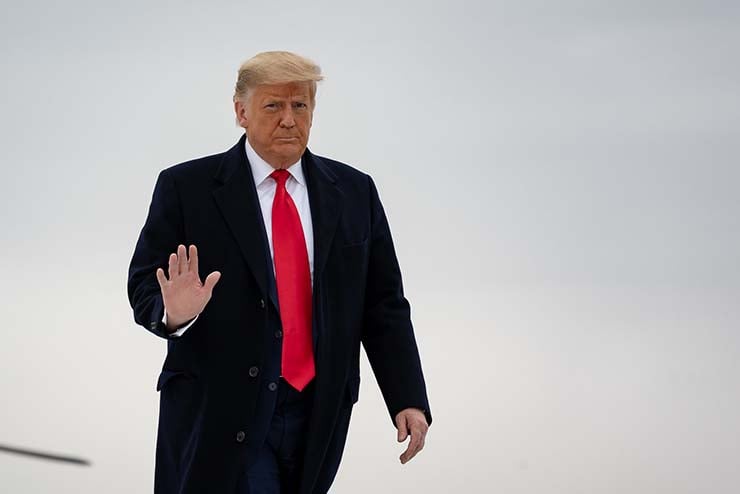Democrats and their allies in the media have utterly failed to grasp the cataclysm that befell them in this last election. Their moral narrative, which they have used to justify their authoritarian movement disguised as “Our Democracy” is shattered and, along with it, the politics of the past decade. The left’s business model is bankrupt, perhaps never to recover.
In the process of selecting Donald Trump as their party’s nominee, Republicans held a contested primary and vetted serious contenders. At the outset, leaders like Ron Desantis, Vivek Ramaswamy, Nikki Haley, and others ran serious campaigns for the Republican nomination. Some, like Haley, were outright rejected. Others, like DeSantis and Ramaswamy, were absorbed into the greater movement.
In contrast, the Democrats followed a process that largely took place out of public view. The typical decision-making and leader-selecting process for Democrats involves complex and opaque negotiations among behind-the-scenes “stakeholders.” Democrats don’t have leaders, rather they have “facilitators” who balance the many competing demands of their disparate coalition, leading to a rigid script of talking points. A single deviation from the script endangers the entire enterprise. Deception and ambiguity lubricate these negotiations.
Thus, when the final message is delivered by a candidate like Kamala Harris, or whomever the Democratic National Committee blob chooses to be its public face, the speeches only vaguely touch upon messages worked out in advance. Thus, Harris held few interviews and always evaded questions that broached subjects outside of her instructions. You could hear it when she spoke. Nobody thought she wrote her own talking points. Nobody thought she was a genuine representation of the people.
Trump, in contrast, held frequent interviews with hostile reporters. He had no problem disavowing Project 2025 and other ideas which strayed from his own carefully worked out platform or tried to inadvertently saddle him with promises he had not independently agreed to meet. Trump publicly clashes with a rival Republican on one day and then partners with that same rival the next. He preserves his own agency. It all looks like chaos to the Democrats. But to the American people, it came across as authentic and transparent. That transparency has now been rewarded.
The fall of the Democratic Party’s hegemony was not inevitable. Countries have fallen under the spell of leftist authoritarianism for decades before emerging from it, and many never have. It takes the courage of a few dissidents willing to risk everything. The Democratic consensus model had fatal flaws that made it vulnerable to resolute opposition. First, crazy extremists within the Democratic Party exerted tremendous leverage by threatening to withdraw from the coalition. In order to keep the coalition together, Democrats were forced to incorporate compromises with their most radical elements. This is why the border was left open, why Democrats fought to keep obviously pornographic books in public school libraries, why they fought for abortion of viable fetuses up until birth, and demanded free sex surgeries for illegal immigrants in custody.
Second, the Democrats used unsavory tactics to enforce the “consensus” compromises. As noted in a recent New York Times piece, Democrats lavished millions on influencers and stars to counter the “right wing” media. Many of these influencers accepted money without disclosing it to their viewers. The Times credits the right for creating the organic speech zone which countered the left’s institutional advantages. But, since the New York Times is such a big part of that institutional advantage, it misses the paper’s own role in creating these opposition speech zones.
In his latest podcast, Joe Rogan reflected on the left’s envy and desire to create a “liberal” Joe Rogan.
“They had a liberal Joe Rogan … They had me!” Rogan said to his guest Marc Andreessen. “One of the things … unfortunately for them …what mass media or corporate media has done is they’ve diminished their credibility so much … the more they make [unsubstantiated claims against Trump] the more they diminish their impact and the more it drives people to independent media sources.”
The Democrats had a liberal Joe Rogan but they tried to cancel him for contradicting the consensus view of COVID. They had a liberal Scott Adams but canceled him for commenting on the racist nature of DEI. They had a liberal Elon Musk but lost him when they attacked him for reinstating free speech on X (formerly Twitter). The list is practically endless: Tulsi Gabbard, Robert F. Kennedy Jr., and thousands of nameless men and women who faced the ugly wrath for transgressing the official consensus narrative.
For Democrats, the word “democracy” became a synonym for “consensus,” which they guarded viciously to retain power. So long as they continued to win popular majorities in the national presidential election, they justified institutional resistance to Trump as an expression of the “true” will of the people.
Losing the popular vote collapsed the entire structure that seemed invulnerable from the outside. But now the Democrats have been forced to admit that they failed to persuade the true stakeholders in public policy: the American people writ large. Not only did the voters throw the Democrats out of the executive branch, they took away the tools of resistance in Congress.
History should not be kind to this movement. As I write this today, the damage has been vast: political prosecutions, censorship, harassment of political opponents, and a devastating undermining of the meritocracy. Not only do Americans continue to suffer from the lasting effects of these tactics, but there remains a widespread crisis of incompetence within the institutions that sacrificed merit for ideological purity. While revenge is a tempting objective, transparency is far more important. Republicans won. They should write the history.

Leave a Reply